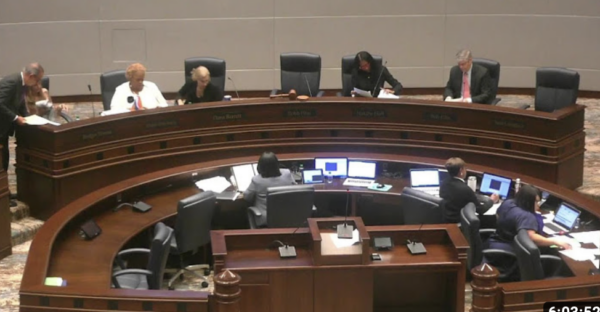Fulton County is following suit with other cities, counties, and states across the nation that are commissioning reparations studies to evaluate the effects of slavery.
Commissioners for the central county of Atlanta voted, 4-2, to approve a study that will examine the social, economic, and political treatment of the county’s Black residents over the last three centuries as well as the potential for reparations to their descendants.

The county is spending $210,000 to fund that analysis which will take place over the next year. The county’s reparations task force will use that money to hire researchers to conduct that examination alongside the Atlanta University Center. They’re expected to return their findings in late 2024.
County commissioners were split on the decision to push the examination forward, with some questioning the necessity of allocating hundreds of thousands of dollars to such a study.
Bridget Thorne of District 1, one of the white commissioners who voted against the measure, vocalized her opposition to the study. She called it unwise and “divisive,” adding that that money could be spent on more immediate needs.
“This is coming out of taxpayer dollars — this $210,000 is coming out of taxpayers dollars, whatever reparations, whatever they decide, whatever they find, they are going to make the taxpayers pay for it,” Thorne told The Washington Examiner. “And we don’t have money for a jail, we don’t have money for a hospital, that’s what we need to be focusing on.”
Thorne also noted that the county’s reparations task force, which was formed in 2021, is only researching data up until the end of urban renewal in 1980 and purposely negating the county’s numerous costly initiatives that helped marginalized communities since that decade.
The task force serves as an advisory board to the county and is tasked with assessing objectives and policies in the form of reparations that will support the revitalization and stabilization of the county’s Black population. The $210,000 that’s being spent on this newly-approved study comes out of the renewed $250,000 budget the group was allocated earlier this year to continue work on those recommendations.
Commissioner Khadijah Abdur-Rahman went on the defense against Thorne’s viewpoint, stressing that the point of the study is to first determine whether reparations are necessary and also stating that this expenditure accounts for a small fraction of the county budget.
“The purpose of the reparations task force is to evaluate if reparations are warranted. If they are warranted, in what form? Should it be educational? Should it be financial? What should they be?” Abdur-Rahman told Fox 5 Atlanta. “To me, if you walked in the shoes of my ancestors and others who are of color, your perspective would not be that.”
According to 2022 Census data, exactly 45 percent of Fulton County’s residents are Black, and 44.2 percent are white. The county is comprised of more than a dozen cities including Alpharetta, Atlanta, Chattahoochee Hills, College Park, East Point, Fairburn, Hapeville, Johns Creek, Milton, Mountain Park, Palmetto, Roswell, Sandy Springs, South Fulton, and Union City.


